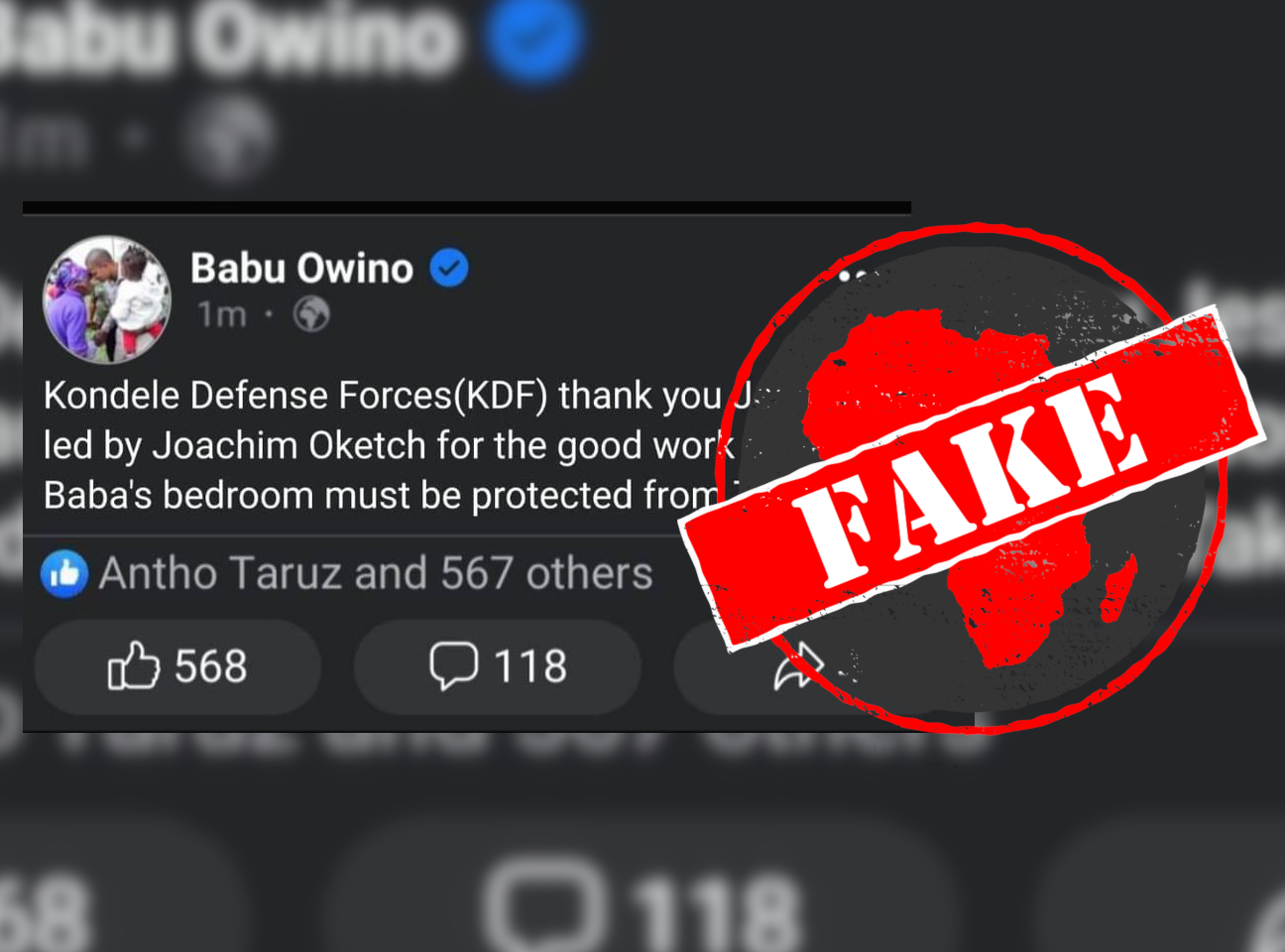Kenyan opposition politician Babu Owino has praised the crowd that attacked deputy president William Ruto’s motorcade with stones in Kondele, Kisumu county, on 10 November 2021.
Or so it seems from an image that appears to be a screenshot of a Facebook post bearing the politician’s name, itself posted on Facebook.
“Kondele Defense Forces (KDF) thank you Jeshi la Baba led by Joachim Oketch for the good work done. Baba’s bedroom must be protected from Taka Taka!” the screenshot reads. It has Facebook’s blue verification badge next to Owino’s name.
Kenya’s next general election is set for August 2022. The main contenders for the presidency are Ruto and Raila Odinga, a former prime minister and leader of the opposition Orange Democratic Movement (ODM).
Odinga is commonly referred to as “Baba”. The people of Kisumu – “Baba’s bedroom” in the image – have long supported the former prime minister in elections.
Owino is a member of the ODM and member of parliament for Nairobi county’s Embakasi East constituency.
Africa Check has already debunked a false viral claim that a year-old photo shows Joachim Oketch, a local Kisumu politician, as part of the crowd stoning Ruto’s motorcade on 10 November.
“Taka taka” is Kiswahili for “trash”.
Kondele is a neighbourhood in Kisumu, Kenya’s third-largest city and capital of Kisumu county. There is no “Kondele Defense Forces” – this is a tongue-in-cheek reference to the stone-throwing crowd.
But did opposition MP Owino really post this message, praising the crowd, on Facebook?

Message can’t be found
Africa Check searched Owino’s verified Facebook page for the message, but found nothing. An advanced search of his verified Twitter page for tweets from 9 to 12 November also returned no result.
On 11 November, Owino posted the screenshot on Twitter and Facebook with a two-word comment: “FAKE ACCOUNT.”
FAKE ACCOUNT pic.twitter.com/ouoTjEFnxF
— Babu Owino (@HEBabuOwino) November 10, 2021
The screenshot is fake.
Republish our content for free
For publishers: what to do if your post is rated false
A fact-checker has rated your Facebook or Instagram post as “false”, “altered”, “partly false” or “missing context”. This could have serious consequences. What do you do?
Click on our guide for the steps you should follow.
Publishers guideAfrica Check teams up with Facebook
Africa Check is a partner in Meta's third-party fact-checking programme to help stop the spread of false information on social media.
The content we rate as “false” will be downgraded on Facebook and Instagram. This means fewer people will see it.
You can also help identify false information on Facebook. This guide explains how.


Add new comment